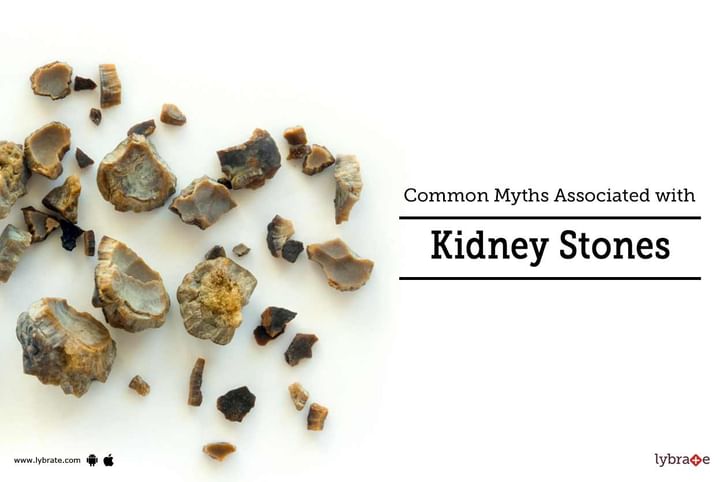Common Myths Associated with Kidney Stones
With the many misbeliefs associated with kidney stones, you might be left confused on what to follow and what not to. But, for better understanding of your condition, is it important to get familiar with the real facts. So, listed below are the common myths on kidney stones with some actual facts:
Myth 1
Patients with kidney stones cannot eat tomatoes.
Fact: Patients can eat tomatoes without any fear, as it is only contraindicated when the blood potassium level is too high in the patient’s blood. Eating tomatoes, ladyfinger, and other seeded- vegetables in normal quantities have no role in causing kidney stones.
Myth 2
Diet for every patient having kidney stones is the same.
Fact: The diet for kidney stones varies with the type of stone and severity of the condition. Any food which is eaten in moderation can never lead to any medical problem.
Myth 3
Milk is contraindicated in kidney stones.
Fact: Milk is the source of calcium. It has been proved that milk does not affect the formation of kidney stones. Excess of protein-rich foods, such as meat, egg and fish, are avoided because it increases the chances of stone formation.
Myth 4
An individual should take plenty of all kinds of fluids to get rid of stones.
Fact: The best fluid to prevent kidney stones is water. One can have plenty of water with some added lemon juice, without sugar or salt in particular. All other kinds of fluids, such as tea, coffee, sodas, soft drinks, should be taken in smaller quantities. All these fluids cause increased flow of urine but ultimately cause loss of bodily fluids. On a rough scale, each cup of tea causes the body to lose at least two glasses of water.
Myth 5
Intake of beer is useful for kidney stones.
Fact: Beer causes loss of large amounts of vital body fluids, which ultimately leads to kidney stones. Beer also contains several chemicals which can cause kidney stones.
Myth 6
Staying in the air-conditioned atmosphere has no relation with the kidney stone formation.
Fact: The air-conditioned atmosphere removes moisture from the environment. So, if the patient lives and works in the air-conditioned atmosphere for a very long period, it may lead to a kidney stone.


+1.svg)
